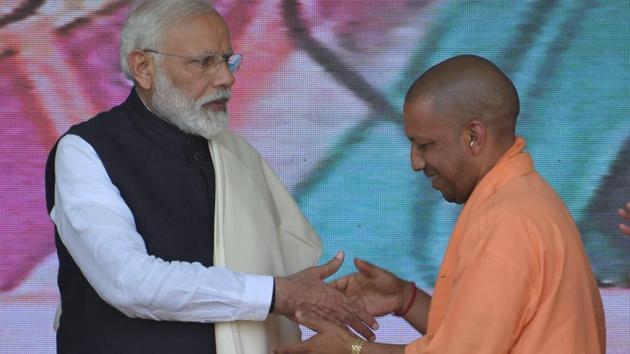Opinion | Adityanath calls the Indian Army ‘Modi Sena’. Why we should all be furious
Surveys routinely show that the Indian Army is the country’s most trusted institution. It remains unscathed by the cynicism and lack of trust that has plagued almost every other pillar of democracy. But while the army has always been the first frontier of protection; it must now rise to keep its own essence secure.
Uttar Pradesh chief minister Yogi Adityanath has never been famous for nuance or civility of expression. But the CM crossed even his own line when he called the Indian Army “Modi’s Sena”. The BJP may well explain it away as rhetorical flourish about the political will that made the Balakot strike possible, but the words are not benign. Nor can they be dismissed as hyperbole. Any attempt at political ownership of the military is not just alarming; it is treacherous. The soldier owes allegiance to the Indian State — and to his paltan and uniform; not to any government or political party. For a party that otherwise prides itself on muscular nationalism, the BJP, in this case, has violated the first principle of patriotism.

While the Election Commission (EC) has issued notices, it would have set a stellar example had the reprimand and disassociation come sharply and swiftly from our three military chiefs.
Parallels exist. Adityanath’s comments erupted into controversy in roughly the same week that the Australian Chief of Defence Forces Angus Campbell interrupted the comments of the country’s defence minister so that his officers could be moved away while the minister answered political questions.
Surveys routinely show that the Indian Army is the country’s most trusted institution. It remains unscathed by the cynicism and lack of trust that has plagued almost every other pillar of democracy. But while the army has always been the first frontier of protection, it must now rise to keep its own essence secure.
The most moving reprimand to Adityanath came this week from Siddharth Kumar, the 20-year-old son of Pradeep Kumar, a Central Reserve Police Force (CRPF) officer who was among those who lost their lives in the Pulwama terror attack. I was sitting with him in his village at Shamli in western Uttar Pradesh when news of Adityanath’s words filtered in. Siddharth told me: “The uniform does not belong to any neta; it belongs to the country.” Nor was he comfortable with the prime minister’s emphasis on the Hindu voter. “My father’s uniform did not discriminate between Hindu and Muslim,” he said quietly. It has not even been three months since his Siddharth lost his father. Yet, he was able to display the kind of maturity and sensitivity that was in sharp contrast to the coarseness of the CM. In my mind, he, not Adityanath, is the true nationalist.
The military also needs to reflect on how political polarisation is in danger of splitting its community down the middle. Of course, the soldier is also a citizen and entitled to her/his voting preference. But should we be comfortable with the recent phenomenon of soldiers joining electoral politics after retirement? Two of our former chiefs, General VK Singh and General JJ Singh, have taken the plunge. Down the line, many other soldiers or their families have embraced party politics. Kargil war hero Vikram Batra’s mother briefly flirted with politics and, realising that neither she nor her family were cut out for it, quit soon after. More recently, soldiers such as Major Surendra Poonia or short service commission officers such as Shalini Singh have also enrolled with political parties.
As citizens, this is their right. But I wonder if it sets the ball rolling for the wider party-politicisation of the military. There are no easy answers. Many of the same questions apply to other professions too: journalists, judges, lawyers and technocrats. But there is no other profession whose independence and dignity matters as much as that of the military. The stakes here are much higher.
It is also time to distinguish between electoral nationalists and genuine patriots. When a political party uses nationalism to court votes that qualifies them only to be electoral nationalists.
Why, for instance, is no one — not even the self-proclaimed patriots of prime time TV — talking about the non functional financial upgrade (NFFU) for soldiers and the paramilitary? This financial package is given to other central government agencies to offset the loss from diminished promotion opportunities. The Armed Forces Tribunal ruled in favour of this but the ministry of defence appealed against it in the Supreme Court. Worse, their representatives made snarky comments about how soldiers live in “palatial houses”. This led to a slew of social media posts by soldiers who shared photographs of their bunkers, modest flats and forward post experiences, with an ironic use of the phrase, palatial house.
Yet no neta or TV warrior wants to talk of the issues that actually matter to soldiers.
Rhetoric is lazier, easier and cheaper.
Barkha Dutt is an award-winning journalist and author
The views expressed are personal






